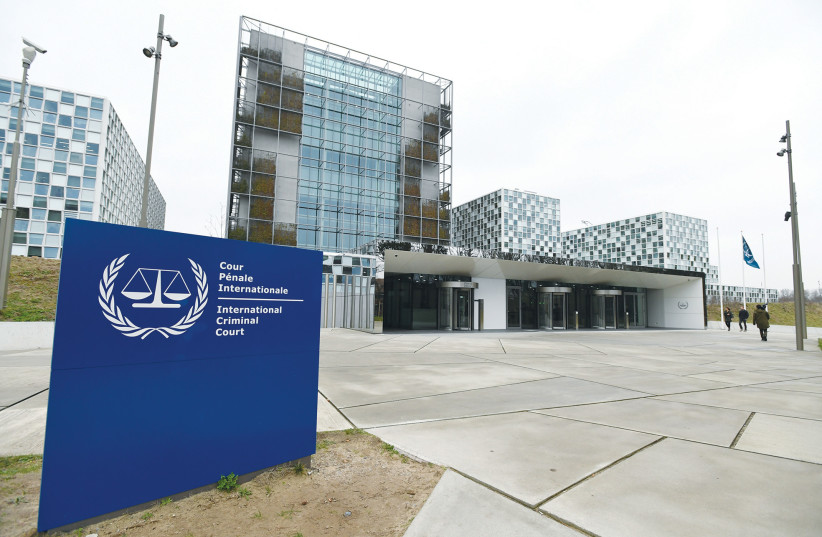In recent weeks, the discourse surrounding the prosecution of Hamas terrorists by the State of Israel has intensified.
The clear fact is that Israel does not recognize the authority of the International Criminal Court (ICC), and therefore, any decision will be based on local law.
Some members of the public and experts call for new legislation that would allow for the proper prosecution of Hamas terrorists, similar to the laws enacted for prosecuting Nazis and their collaborators. This is driven by the concern that existing laws may not be sufficient to allow them to fully pay the price of their actions.
Conversely, some argue that the existing local laws, including those regarding unlawful combatants, are sufficient for this purpose.
Attack victims should not be overlooked
In this discussion, a central factor is often overlooked: the victims of the attacks.
The October 7 massacre affected all of us as a nation and as a society, but there is a group that paid the heaviest price: the families of the victims, orphaned children, and victims of sexual assaults. They are suffering severe psychological, physical, and economic consequences. The rights of the victims of terrorism are not necessarily related to money but to “justice” – providing emotional, moral, and legal redress for the injuries inflicted.
So far, the state has not established a mechanism to assist these victims. Families have not been informed of their rights and there is no established mechanism for economic or psychological support.
Delay in victims' right is "secondary victimization"
The rights of these families include vital information and the opportunity to participate in criminal proceedings. The delay in providing rights and information creates “secondary victimization” because the victims experience additional harm from the state, which is supposed to protect them.
As someone who has been involved in the field of victims’ rights for many years, the central question for me is how the state will grant these rights to the victims. The establishment of a structured mechanism is required to assist them in obtaining information, psychological and economic support, and enabling their participation in legal proceedings.
For example, in the Eichmann trial, live witnesses provided a humane and weighty form of testimony. The rights of victims of terrorism involve not only financial compensation but also regaining control over their lives and acknowledgment of their suffering. In legal proceedings against Hamas members, it is important for the families of the victims to be able to tell their stories and influence the process.
Legal proceedings against Hamas members will not conclude quickly, but the severe impact on the families of the victims: orphaned children who will grow up and may want to assert their rights; amputees; and victims of sexual assaults will endure. It is the duty of the state today to take them into account in every decision.
In this area as in other fields, civil society has mobilized to assist the victims. The fruit of individual initiative, Lilach – Accessibility to Justice for the Victims of the October 7 Attack, named after Lilach Kipnis – who was massacred along with her husband, Avitar, and another family member – was formed in a collaboration between the families of the kidnapped and missing and Ono Academic College, and it includes a central support organization for victims of the attacks and the sexual assault.
Victims' voice must be heard
The State of Israel must take into account the needs of the victims in every legal process and not leave them behind. Their rights must be ensured, and they must be provided with the proper response. Victim neglect is not only a moral harm but also damages public trust in the legal system and state institutions.
These victims, who have experienced trauma and incomprehensible loss, need to know that the state stands by them, recognizes their suffering, and invests resources in their healing.
Therefore, I call on the authorities to act immediately and establish an efficient mechanism that guarantees the realization of the rights of victims of terrorism. This includes not only the right to information and assistance but also the opportunity to participate in and influence legal proceedings.
This will ensure that they feel they are part of the process and not just passive victims.
Legal proceedings against Hamas members will last a long time, and the impact on the victims will persist over time. It is important to remember that the victims are not just numbers in reports or statistics in legal files; they are real people who have experienced tragedy. They need to feel supported, heard, and assured that their rights are preserved and realized.
The state must see the victims and consider their needs at every stage and decision. This is not only a legal obligation but also a moral and societal one.
As a society, we must ensure that the voices of the victims are heard and that they are full partners in the legal process and the fight for justice and truth.
The writer is an expert at Ono Academic College on the rights of victims of crime.
The Lilach Project aims to make justice accessible to the victims of the October 7 massacre and their families through policy and legislation, professional assistance to various state entities, and a connection with the victims themselves, in order to accurately reflect their needs, including providing legal assistance and legal representation.

